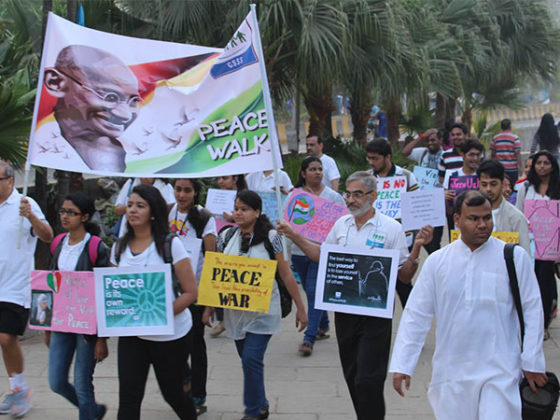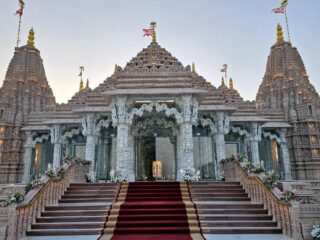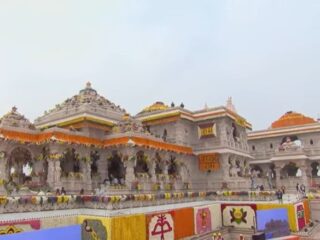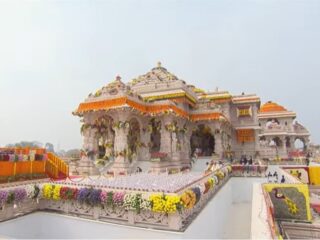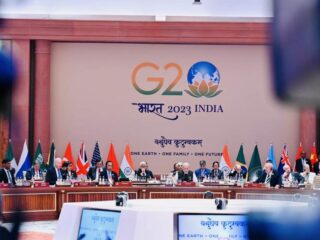Neha Dabhade
(Secular Perspective February 16-29, 2016)
The suicide of Rohith Vemula shocked the country and brought the focus on the debate of caste discrimination and freedom of expression. Rohith was a Dalit PhD scholar at the prestigious University of Hyderabad. He was part of Ambedkar Students Association (ASA) at the University. A student fascinated by science, he was in a quest of truth through the lens of rationale and the writings of Ambedkar. He was appalled by the phenomenon of caste and wanted to address it. This quest for truth about identity and politics manifested when the ASA organized a meeting to protest the hanging of Yakub Memon since ASA is in principle against capital punishment. This meeting was disrupted by ABVP, students’ wing of RSS. Preceding this incident, Rohith was part of the protest against disruption of the screening of the film “Muzaffarnagar Baaqi hain” in Delhi University. It was alleged that Rohith assaulted the ABVP leader in 2015 after which he sustained serious injuries. Though later it was found out that ABVP leader was hospitalized for appendicitis surgery and not for any injuries, the University authorities still banned Rohith and other four students from the campus. They were suspended and Rohith’s stipend stopped. This vindictive move of the University meant that Rohith couldn’t send back home any financial help which was much needed (Indian Express, 2016).
He and other ASA students were punished for their ideologies and political positions by calling them “anti- national, extremist and casteist” by the University and the government. His mother recently lamented that the Prime Minister hasn’t reached out to the family like other politicians have. She demands that justice be done. Rohith is just one example. In the caste ridden society, Dalits have to undergo the painful reality of being labeled Naxalites, rapes, violence and discrimination. For instance, in 2014, Sudhir Dhawale was released from Nagpur prison after forty months. He was arrested along with 60 other Adivasis and Dalits. He was a Dalit activist raising question of inequality in society. But he was accused of carrying out naxal activity (Indian Express, 2014). Like Sudhir there are many across the country who are unfairly penalized by the state for asking for rights.
Caste system is unique to Hindu religion. In caste system, the status of a person and his or her occupation is determined by birth. Social mobility is not permitted. People born in the lower castes forever will be at receiving end of injustice and discrimination. A person’s aptitude or choice is of no consequence. That’s why Rohith Vemula in his suicide note called his birth a “fatal accident”. In older times, the very shadow of Dalit was considered polluting. Thus they were deprived of all rights. Even today any sign of Dalit assertion or upward mobility is strongly resented and brutally crushed. This is demonstrated from the fact that Dalit grooms are still not allowed to sit on a horse during the wedding procession and Dalit women Sarpanches are raped, paraded naked and threatened. Untouchability is still practiced in some rural areas where Dalits are not allowed to enter temples or draw water from common wells. However due to awareness created by Ambedkar, the rights guaranteed under the Constitution and the reforms brought during colonial rule, discrimination and untouchability can’t be practiced in its crude rabid forms today. Its nature has changed to become more nuanced but it still prevails. The ones who gain from the caste system won’t allow this system to be contested.
RSS tries to reach out to Dalits. This attempt to reach out to the Dalits is not out of concern for having an inclusive India or social order. RSS never protested the Khairlanji incidence. It still brutally opposes inter-caste marriages. Its purpose to reach out to Dalits is twofold. One is to co-opt the Dalit struggle for equality and rights- social, political, economic and cultural. It wants to neutralize Dalit struggle and opposition to RSS. And other is to recruit Dalits as foot soldiers in its agenda of Hindutva to fight Muslims and Christian considered as outsiders by the RSS. In order to understand fully the implications of such co-option, light must be shed on the ideology of RSS as an organization. RSS was formed pre independence by socially elite caste males. The RSS never participated in the freedom struggle of India; it also opposed social movements for equality and rights of the marginalized. It wanted status quo where the privileged castes and males continue to dominate and enjoy the hegemony that is derived from the caste system. Its idea of India is very different than that of the founding fathers of the country.
The ideology of Hindutva it swears by, envisions a society deeply entrenched in hierarchy and exclusion. Due to exigencies dictated by a number of factors including the awareness and socio-political assertion of Dalit rights, especially due to the work of Dr. B. R Ambedkar, the RSS is forced to grapple with the issue of Dalits. The strategy it has thus adopted insists on samarasata (assimilation) and not samata (equality). It wants that each caste must retain its identity and privileges. It is comfortable with Dalits so far as they don’t demand for rights or equality at par with the privileged castes. Part of this can be explained due to the analysis of Ambedkar that caste is entrenched in religion- Hindu religion. RSS claims to represent Hindu religion and Hindus in India. Thus if it wants to genuinely include Dalits and accept them as equals, it will have to reconcile to the fact that Hindu religion is at the root of discrimination and hierarchy. This would be suicidal to its ideological capital and antithetical to its very identity. Does this mean any ground change on the status of Dalits? The answer is no.
RSS has openly supported caste system. In fact it went as far as claiming that caste system is a part of India’s “glorious” past. This is not surprising given that RSS ideologue M.S Golwalkar in his book Bunch of thoughts justified caste system in no ambivalent terms. “There is nothing to prove that it (the caste system) ever hindered our social developments. Actually caste system has helped to preserve the unity of our society.” (Bunch of Thoughts p.108)
“The history proves that Mohammadan could win over North West and north east areas easily where Buddhism had shattered the pattern of caste system. Gandhar which is Kandhar now, was converted to Islam completely. But contrary to this, Hindu religion was strong in Delhi and Uttar Pradesh despite Muslim rule because caste system was strictly followed there. (Bunch of Thoughts] (The Milli Gazette, 2006)
Dalits in India and especially Rohith was influenced by the views and writings of Ambedkar. Ambedkar became the voice of the marginalized by carrying out a struggle to annihilate caste by pointing to the significance of organization for political power and of education. Ambedkar was concerned about equality and democracy. He is the icon that RSS seek to appropriate by quoting him selectively like they have done with other great thinkers. Ambedkar realized that so long as the caste system prevails, real and economic democracy would elude India. The Manusmriti which was a code governing this morbid caste system prescribed gory punishments for Dalits and women. Dr. Ambedkar burnt the copy of Manusmriti which symbolized secondary position and dehumanization of Dalits. However it’s interesting to note that when the Constituent Assembly finalized the Constitution of India, the RSS mouthpiece Organiser in its editorial in the November 30, 1949 issue lamented: “But in our Constitution there is no mention of that unique constitutional development in ancient Bharat. Manu’s Laws were written long before Lycurgus of Sparta or Solon of Persia. To this day his laws as enunciated in the Manusmriti excite the admiration of the world and elicit spontaneous obedience and conformity. But to our Constitutional pundits that means nothing.” (Communist party of India (Marxist), 2015)
Like mentioned earlier RSS want to appropriate Ambedkar and selectively quote him for its own ends. Hence it has always maintained that Ambedkar was in favor of the partition since he didn’t trust Muslims and believed in the two nation theory. Far from distrusting the Indian Muslims, Ambedkar says in his book, Pakistan or The Partition of India, “There are many lower orders in the Hindu society whose economic, political and social needs are the same as those of the majority of the Muslims and they could be far more ready to make a common cause with the Muslim than they would with high caste Hindus who have denied and deprived them of ordinary human rights for centuries”.
Ambedkar further argues, “Is it not true that under the Montagu-Chemsford Reforms, in most Indian provinces the Muslims, Non-Brahmins and Depressed classes united together and worked the reforms as members of one team from 1920 to 1937? Herein lies the most fruitful method of communal harmony among Hindus and Muslims and of destroying the danger of Hindu Raj”. (First post, 2014)
Thus it’s quite ironical that the RSS mouthpiece Organiser brought out an edition on Ambedkar. What the RSS seek for the country was antithetical to the idea of India that Ambedkar nurtured- India where there was equality and liberty for all. One of the provisions in the Constitution to achieve the same is reservations for Dalits in education and jobs. It can’t be overlooked that when the Mandal Commission recommendations were implemented, the Advani-led BJP started the Ram Janma Bhoomi movement inciting communal polarisation throughout India. RSS supporters stirred up anti-reservation rallies and incidents of self-immolation took place.
In terms of education too, the RSS has always sought to rewrite history keeping in mind its own agenda of homogenization and Hindutva. Thoughts of thinkers which differ from this agenda are excluded. That explains withdrawing the book titled Rashtriya Mahapurush Bharat Ratna Dr. B. R. Ambedkar written by Dalit scholar P. A. Parmar from Gujarat schools. This book was one of the reference books recommended for students of classes VI- VIII. It was found that the publisher of the book had added a page on the 22 vows written by Ambedkar when he denounced Hindu religion. These vows were terms as ‘anti- Hindu’ and thus the book was withdrawn (Indian Express, 2015) . Similarly the RSS posed one of the strongest opposition to the Hindu code bill introduced by Dr. Ambedkar. In 1949 alone, it organized as many as 79 meetings in Delhi where effigies of Nehru and Ambedkar were burnt, and where the new Bill was denounced as an attack on Hindu culture and tradition (The Hindu Magazine, 2004).
If one thinks that over the years there has been any difference in the views of the RSS then they are sadly mistaken. Yellapragada Sudershan Rao, the head of the Indian Council of Historical Research (ICHR) shocked everyone blog-article titled, ‘Indian Caste System: A Reappraisal’, he wrote: “The (caste) system was working well in ancient times and we do not find any complaint from any quarters against it. It is often misinterpreted as an exploitative social system for retaining economic and social status of certain vested interests of the ruling class” (Times of India, 2014). For instance it mischievously traces the origin of caste system in India to the invasion of Muslims. Recently it maintained that Muslim kings in order to subjugate Hindus forced them to eat beef and take up jobs like killing cows and skinning them alive. This is how untouchability came to be according to the ideologues of RSS.
Prime Minister Narendra Modi on the occasion of 60th death anniversary recounted Ambedkar’s contribution to the Constitution and also his approach of inclusiveness. The BJP eyeing Dalit votes wants to woo the Dalits by claiming Ambedkar’s legacy. However it merely pays lip service to the cause of Dalits. In 2007, Narendra Modi had stated that manual scavenging is a “spiritual” experience which drives Dalits to undertake it. He recently changed his position and called for an end to manual scavenging. The BJP though belonging to the same ideology as RSS aims at co-option of Dalits for widening their vote base especially in UP and Bihar. This doesn’t imply supporting of cultural rights or economic rights of Dalits.
In order to enable any community to develop and realize equality, the state which has huge budget at its disposal, must allocate fair resources for the development of such marginalized communities. This means that adequate budget be set aside for SC sub plan. However in the 2015-16 budget, Dalits have been allocated only Rs 30,850 crore, while the allocation for Adivasis is only Rs 19,980 crore. However, as per the SCSP/TSP Guidelines, the SCs should have been allocated 16.6 percent of the Plan Outlay, which amounts to Rs 77,236 crore towards the SCSP and the STs should have been allocated 8.6 percent of the Plan Outlay, which amounts to Rs 40,014 crore towards the TSP. When compared to allocations in Budget 2014-15, the SCSP allocation was Rs 43,208 crore and the TSP allocation was Rs 26,714 crore. This decline is detrimental to the interests of the Dalits. It’s interesting to note that that in the 2015-16 budget, corporate tax was reduced from 30% to 25% (Divakar, 2015). This elucidates the priority and inclination of the State and its sincerity about the development of Dalits.
The RSS and BJP for their own ends are trying to create an illusion of respecting Ambedkar and Dalits. But it means little for the rights of Dalits or the fate faced by many Rohiths in this country.
———————————————————-
Centre for Study of Society and Secularism
Mumbai.
E-mail: csss2work@gmail.com

